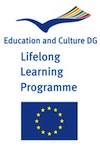Related EU projects
Eur-Alpha is a European network of exchanges between literacy and numeracy practitioners, learners, trainers, researchers, policymakers… It was founded in 2009 and currently counts 16 partners coming from 12 different countries.
Eur-Alpha aims at supporting and developing best quality practice in literacy and numeracy in Europe by:
- The development and support of the learners voicing of opinions and participation
- The improvement of the educational practices facilitating learners self-determination and participation
Capitalizing on Validpack: going Europe wide - CAPIVAL (511883-LLP-1-2010-RO-KA4-KA4MP) is a KA4 - Dissemination and Exploitation of Results project of the EU Lifelong Learning Programme. It intends to exploit the results of VINEPAC project - Validation of informal and non-formal psycho-pedagogical competencies of adult educators, especially the use of Validpack instrument that facilitates the documentation and evaluation of trainer’s competences acquired in formal, non-formal or informal learning contexts.
Also see the corresponding DIALOGUE case study analysing the research-practice linke of the Validpack and the CAPIVAl project
WebWise brings together a range of European higher education institutions active in the field of public health education as well as experts for innovating e-learning, to analyze, experiment and develop innovative learning scenarios within public health education.
- Identify innovative learning scenarios and learning designs within public health or general health education
- Suggest and test a number of innovations to improve the learning process within the scenarios
- Identify and elaborate the key improvements from the pilots
- Recommend how such improvements may be transferred in public health education and to other areas of Higher Education
- Disseminate recommendations to competent authorities on a national and European level





 Join us on Linkedin
Join us on Linkedin
.png)
